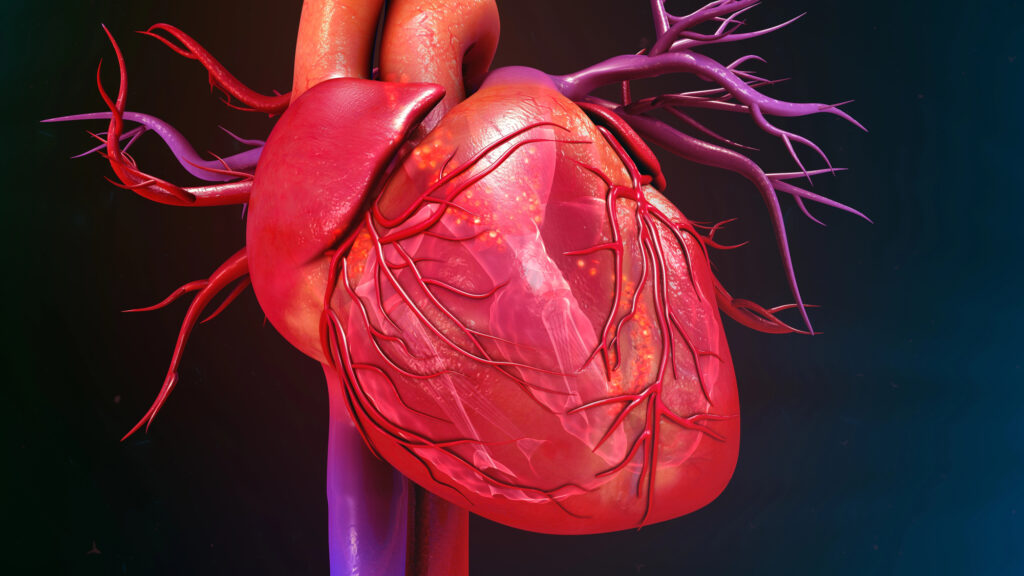In this article we explore the science behind how cytokines and inflammation relate to sleep. So many individuals experience a lack of sleep in overall quantity or quality, whether it be due to nighttime awakenings to care for children or loved ones, a job that is demanding or requires work at evening hours, or other health conditions that contribute to insomnia. As healthcare practitioners, on a daily basis we likely see other aspects of health worsening when patients are unable to sleep. We often hear that sleep is healing and restorative, but what is the research that supports this?
Effects of Sleep Deprivation
One way we can learn about the benefits we derive from sleep is from sleep deprivation studies. Sleep deprivation has been shown to be associated with worse performance on cognitive tasks and motor performance,1,2 depression, feelings of burnout, decrease in feelings of empathy,3 increased vulnerability to infection,4 weight gain,5 and decreased insulin sensitivity.6 In fact, moderate sleep deprivation has been shown to impair motor and cognitive performance as much as the blood alcohol content of 0.1%, which in most locations exceeds the legal limit.7 These findings of course become issues of significant concern in job sectors where sleep deprivation is common such as medical residents or emergency room physicians and the military. Although we don’t all fit into these categories, that does not alleviate the importance that healthy sleep has for us all.
Cytokines and Inflammation: The Effects of Diminished Sleep
Many cytokines, inflammatory markers, and hormones are impacted by sleep and the lack thereof. Many of these have a diurnal variation, and as such the impact of sleep is not surprising.8 The night-time decrease in cortisol and increase in melatonin is well known to be important for quality sleep, but cytokines such as interleukin (IL)-6 also normally increase at night and induce fatigue.9 Other markers of inflammation such as C-reactive protein (CRP), which does not have a diurnal variation in healthy subjects,10 have also been shown to be increased with both acute total and short-term partial sleep deprivation.11 Even more surprisingly, however, is that increases in CRP extend beyond the days with diminished sleep, as this parameter has been shown to continue to rise with two days of sleep recovery (8 hours/night) immediately after the sleep restriction.12 Other measured inflammatory cytokines, IL-1β, IL-6, and IL-17, also were increased with sleep restriction, with IL-17 continuing to remain elevated after two days of recovery sleep. In another study, prolonged acute sleep deprivation (34 hours) was shown to increase levels of the pro-inflammatory cytokine tumor necrosis factor alpha (TNF-α).13 The circadian rhythm of the secretion of IL-6 and TNF- α has been observed to be shifted in individuals with chronic insomnia,14 a factor which may be important to consider with interventions directed at inflammation in addition to other supportive therapies.
The Blood-Brain Barrier, Sleep, and Stress
If these factors alone are not alarming enough to cause us to retreat back to bed for an extra hour of sleep, this one may be. The integrity of the blood-brain barrier, which is crucial for protection of the central nervous system from circulatory proteins and toxins that may contribute to neuroinflammation and damage, also is affected by sleep restriction.15 Disruption of the tight junctions of the blood-brain barrier may be a factor that contributes to numerous neurodegenerative diseases including Alzheimer’s disease, amyotrophic lateral sclerosis, multiple sclerosis, and more.16 The low-grade inflammation associated with sleep loss and the previously mentioned increases in cytokines and inflammatory markers may be the factors leading to the altered function of the brain endothelial cells and tight junction proteins with decreased sleep.17 Stress also increases permeability of the blood-brain barrier via the release of corticotropin-releasing hormone (CRH).18 The stress-associated increase in blood-brain barrier permeability may be a factor that contributes to increased symptoms with stress in neuroinflammatory conditions such as multiple sclerosis. Elevations in CRH and cortisol, which it stimulates, are associated with disrupted sleep,19 signifying the importance of addressing the adrenal axis as well with neuroinflammation.
The Benefits of a Nap to Reduce Inflammation
Although the reports from patients and self-assessment on the benefits of napping may be quite varied, positive effects generally have been shown. A recent review surveying the impact of a scheduled nap in populations such as emergency medical services personnel and similar shift workers found that a nap had 
Regardless of status of health or disease, these changes, especially on a prolonged basis can have significant impact, shedding light on the importance of sleep for all.
Dr. Decker is a Naturopathic Doctor, graduating with honors from the National College of Natural Medicine (now the National University of Natural Medicine) in Portland, Oregon. Dr. Decker sees patients at her office in Portland, OR, as well as remotely, with a focus on gastrointestinal disease, mood imbalances, eating disorders, autoimmune disease, and chronic fatigue. Prior to becoming a naturopathic physician, Dr. Decker was an engineer, and obtained graduate degrees in biomedical and mechanical engineering from the University of Wisconsin-Madison and University of Illinois at Urbana-Champaign respectfully. Dr. Decker continues to enjoy academic research and writing and uses these skills to support integrative medicine education as a writer and contributor to various resources. Dr. Decker supports Allergy Research Group® as a member of their education and product development team.
These statements have not been evaluated by the FDA. This product is not intended to diagnose, treat, cure, or prevent any disease.








